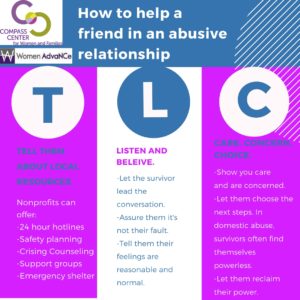 By Vivian Muzyk, Compass Center for Women and Families
By Vivian Muzyk, Compass Center for Women and Families
“If Britny walked into a room, it was like the sun started shining. Her smile was contagious. Britny was the sweetest soul and everybody loved Britny…except her boyfriend,” said Stephen Puryear, Britny’s father as he stood alongside North Carolina Governor Roy Cooper moments before “Britny’s Bill” became law.
Britny Puryear was a young mother who had been silently struggling in a relationship with an abusive partner—her son’s father. Even her loving family had no idea about the abuse until it was too late. Her life tragically ended one day when her abuser shot and killed her. Then the Puryears learned that the District Attorney’s Office would offer their daughter’s killer a second degree murder plea. They were told that prosecutors often struggle to convince juries that abusers who kill their partners have committed first degree murder under North Carolina’s premeditation law.
This injustice spurred the Puryears to devote more than a year working to change the laws. On December 1st “Britny’s Law” goes into effect. From that date on, abusers who kill their victims and have previously been convicted of domestic violence will be eligible to be charged with first degree murder. Gov. Cooper also passed bills that expand protection to victims when perpetrators disseminate private photos and protect victims when their domestic violence protection orders are under appeal.
“‘Britny’s Law and the other bills are a huge step forward in North Carolina’s fight against domestic violence,” said Amily McCool, Legislative and Policy Director of the North Carolina Coalition Against Domestic Violence (NCCADV), who helped advocate for the new legislation. “We have long known that domestic violence murders are not crimes of passion. They are the result of a pattern of control and abuse that escalate to the point of homicide. ‘Britny’s Law’ is progress, but, there is still so much more work to be done to prevent and end domestic violence.”
More than 55 percent of women in the United States who are murdered are killed by an intimate partner, according to a 2017 report by the Centers for Disease Control . Every 9 seconds, a woman in the U.S. is assaulted or beaten. Last year in North Carolina, 82 people were murdered as a result of a domestic violence.
“Domestic violence is pervasive in our community. 1 in 3 women and 1 in 4 men are victims of domestic violence at some point in their lives. Whether we are aware of it or not, most of us know someone who has suffered abuse from an intimate partner,” said Cordelia Heaney, Executive Director of Compass Center for Women and Families, an Orange County, North Carolina nonprofit that provides support to victims of domestic violence.
In an effort to move the issue forward and seek solutions, Compass Center is bringing together national and state advocates for a panel discussion and film screening about domestic violence and how communities can come together to advocate for change . The event falls in the middle of Domestic Violence Awareness Month on Oct. 23 at 6 pm at the Varsity Theatre in Chapel Hill. Admission is free and open to the public. The evening starts with a film screening of the award-winning documentary “Five Awake.” The film chronicles the advocacy efforts of five women in Louisiana that resulted in the passage of the most comprehensive package of bills aimed at stopping domestic violence to date.
Following the film is a panel discussion and question-and-answer session featuring Jasmine S. McGhee, Director of the Public Protection Section at the North Carolina Department of Justice, Beth Meeks, one of the stars of “Five Awake” who works with the National Network to End Domestic Violence, and Amily McCool of the North Carolina Coalition Against Domestic Violence. The moderator for the event is Dr. Rebecca J. Macy, a department chair and professor at the University of North Carolina-Chapel Hill’s School of Social Work.
To learn more about the event, visit Compass Center’s website at www.compassctr.org . To learn about domestic violence resources across North Carolina and statewide advocacy efforts visit the North Carolina Coalition Against Domestic Violence’s website at www.nccadv.org .

There are no comments
Add yours